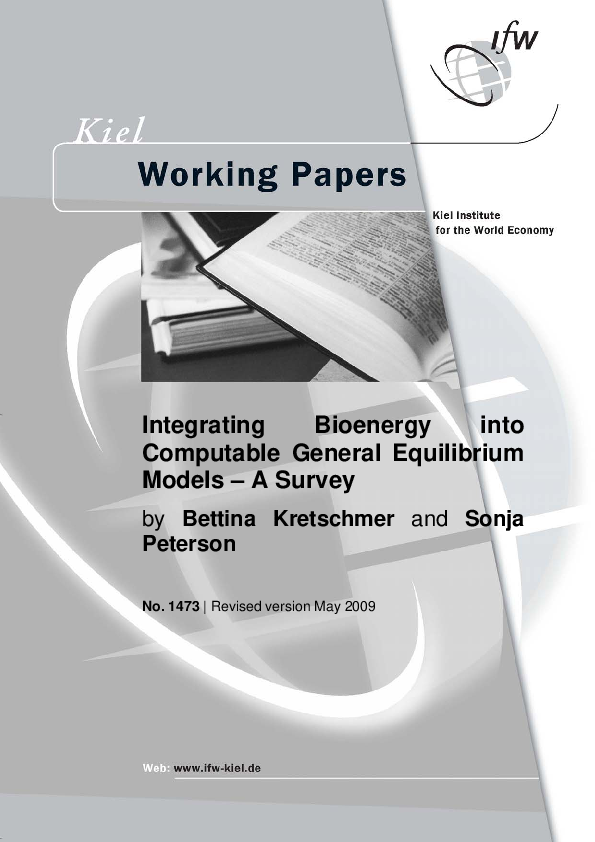Journal Article
Integrating Bioenergy into Computable General Equilibrium Models – A Survey
Authors
Publication Date
DOI
JEL Classification
Key Words
Related Topics
Natural Resources
Climate
In the past years biofuels have received increased attention since they were believed to contribute to rural development, energy security and to fight global warming. It became also clear, though, that bioenergy cannot be evaluated independently of the rest of the economy and that national and international feedback effects are important. Computable general equilibrium (CGE) models have been widely employed in order to study the effects of international climate policies. The main characteristic of these models is their encompassing scope: Global models cover the whole world economy disaggregated into regions and countries as well as diverse sectors of economic activity. Such a modelling framework unveils direct and indirect feedback effects of certain policies or shocks across sectors and countries. CGE models are thus well suited for the study of bioenergy/biofuel policies. One can currently find various approaches in the literature of incorporating bioenergy into a CGE framework. This paper intends to give an overview of existing approaches and to critically assess their respective power. Grouping different approaches into categories and highlighting their advantages and disadvantages is important for giving a structure to this rather recent and rapidly growing research area and to provide a guidepost for future work.





